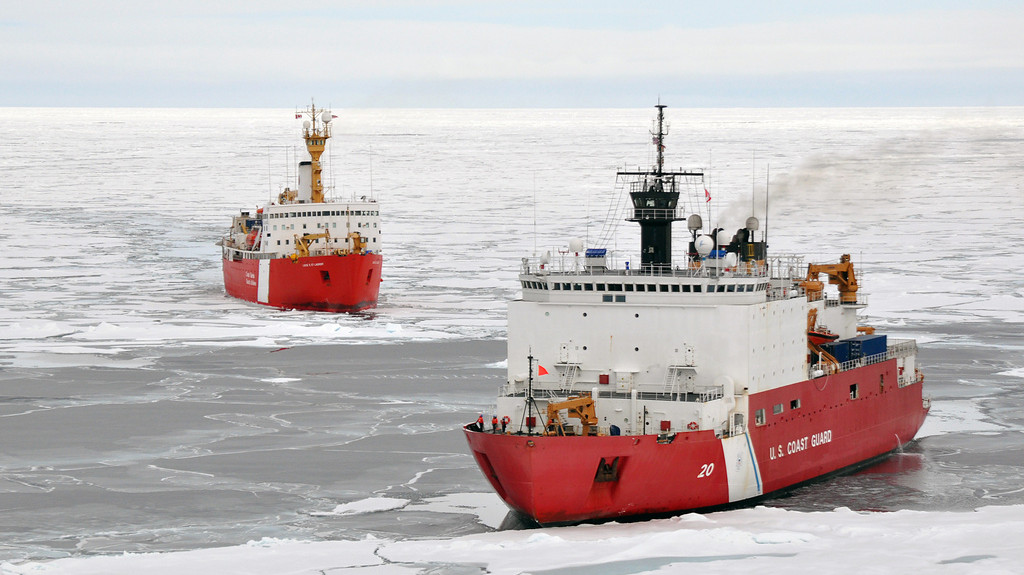When the Coast Guard speaks, who listens?
Newsweek, apparently.
That once mighty mag just put out an interesting cover story about the burgeoning international battle for the melting polar ice cap to the north, and the immense riches that lie within.
And a Coast Guard leader had a spicy quote right in the thick of it.
Here’s how it was set up …
According to scientists, the frozen Arctic is warming twice as fast as the rest of the world (the United States Navy said the entire region could be devoid of any and all ice by 2050, with ships able to cross the globe “from the top” for the very first time). Since it covers more than eight percent of the entire planet, it’s now becoming prime for countries to extract oil and other valuable things from its pristine landscape. In other words — another gold rush.
Only this time the gold isn’t shiny, it’s dark — aka oil.
The emergence of the Arctic as a major player in the cutthroat international game of natural resources doesn’t just pose threats to the environment (it’s clear the immense ramifications of an entire pole melting away) but it also challenges governments and raises a ton of questions — a lot of them in the security and rescue sphere.
It’s why stuff like this is taking place (via Newsweek):
In recent naval war games, representatives of all the U.S. military service branches planned responses to possible near-future scenarios, including terrorists seizing a ship in Arctic waters, enemy vessels carrying nuclear weapons north of Alaska and, if oil companies drill offshore, dealing with a massive spill.
Between the major player nations in the hunt, peace reigns currently. But that all could change on a dime (or a ruble), and its apparent who’s ahead should the situation get ugly and violent.
Allow a prominent U.S. Coast Guard authority to explain (also via Newsweek):
“We’re not even in the same league as Russia right now,” Coast Guard Commandant Paul F. Zukunft says. “We’re not playing in this game at all.”
In the Arctic, the only way to move around on the surface of the sea in even thinner summer ice—to do search and rescue, lead other naval or commercial ships, or conduct heavy research—is often on icebreakers. The U.S. has only two, both old and “there’s no money for new icebreakers,” reports Fran Ulmer, chair of the U.S. Arctic Research Commission. Ulmer says an icebreaker can cost up to a billion dollars, and “it takes years to get one built.” Russia operates 27 icebreakers, and China, which is not an Arctic nation but has aspirations in the area, will have two by next year.
Where does the U.S. go from here?
To read the entire in-depth investigation, click here.




































